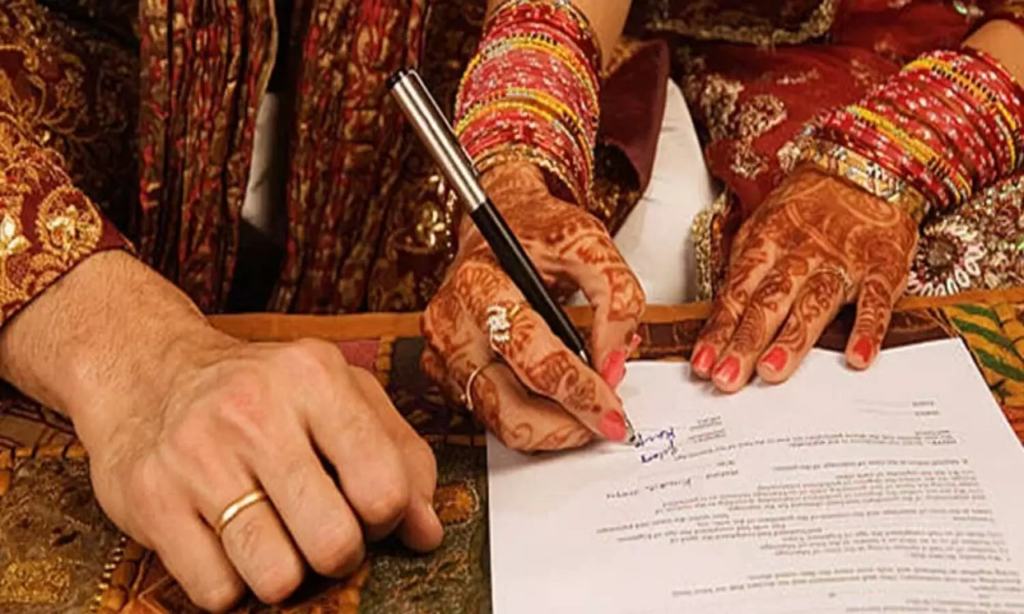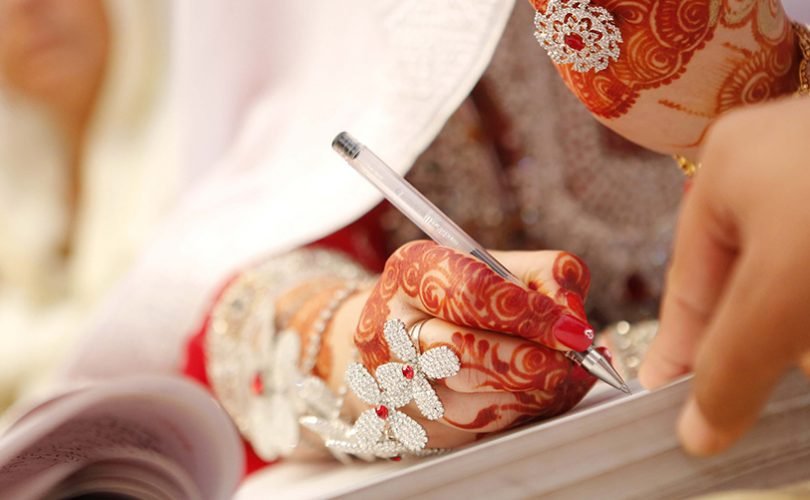Court Marriage
Court marriages are prevalent in India and are governed by the Special Marriage Act of 1954. A court marriage is conducted regardless of socioeconomic class, race, religion, or sect.

Court marriage is also possible for couples who practice two distinct faiths. Broadly said, a judicial marriage is the legalization of marriage. Inter-caste and inter-religious court marriages are also possible. Eligible couples can request officially to the Marriage Registrar for a wedding certification.
Eligibility
- To begin with, neither party must have remained as husband/wife at the time of the marriage.
- The girl must be at least 18 years old, while the husband must be at minimum 21 years old.
- The individuals must be mentally competent.
- They must be competent to provide legitimate consent at the moment of matrimony.
- The applicants ought to be free of any psychiatric condition or lunacy.
- The applicants cannot be in a prohibited connection to any extent. (If their culture permits it, a judicial marriage can take place inside a prohibited relationship.)
List of Documents Required for Court Marriage
The following documents are necessary for a judicial marriage:
- Both the applicants must have signed the request form.
- Document proof of both the applicants’ age
- The applicants’ domicile proof
- Two passport-sized photos of the couple
- If the couple was previously in a matrimony, a death certification or divorce order is required.
- Proof of payments made in relation to the District Court request form.
- The applicants’ declaration that they are not connected to one other in the degree of forbidden relationship established in the Special Marriage Act.
Process of Court Marriage
The procedure to apply for court marriage involves a 6 step process.
Step 1: Marriage Notice
To begin with, the applicants must notify the district’s marriage registrar. It requires both the applicants to the union to notify the Marriage Registrar of their intention to marry in advance and in the manner provided in Schedule 2.
Step 2: Making the Notification Public.
Following posting the notification, the Marriage Registrar should attach it to a certain visible location in his department; there’s also a 30-day wait time for any form of objections. If there are no objections, the marriage can be performed by the registrar.
Step 3: Marriage Objection
Article 7 allows anybody to submit an objection to a judicial marriage within 30 days if the marriage might breach any of the requirements stated in Section 4 of the legislation. However, the objection must be based on legal grounds rather than personal ones. Section 8 requires the Marriage Officer to investigate objections within 30 days and to solemnize the union if the object doesn’t really prevent the marriage from being solemnized.
Step 4: Declarations of the Participants and Witnesses
In a judicial marriage, three witnesses are necessary before the marriage is solemnized. Both participants and 3 witnesses must sign and declare in the manner indicated in the Third Schedule in the presence of the Registrar.
Step 5: Issuance of Marriage Certificate
Post completion of all these stages, the marriage registrar will issue the marriage certificate. This certification should be duly signed by the married couple as well as three witnesses. A certification of this type is irrefutable proof of judicial matrimony.

